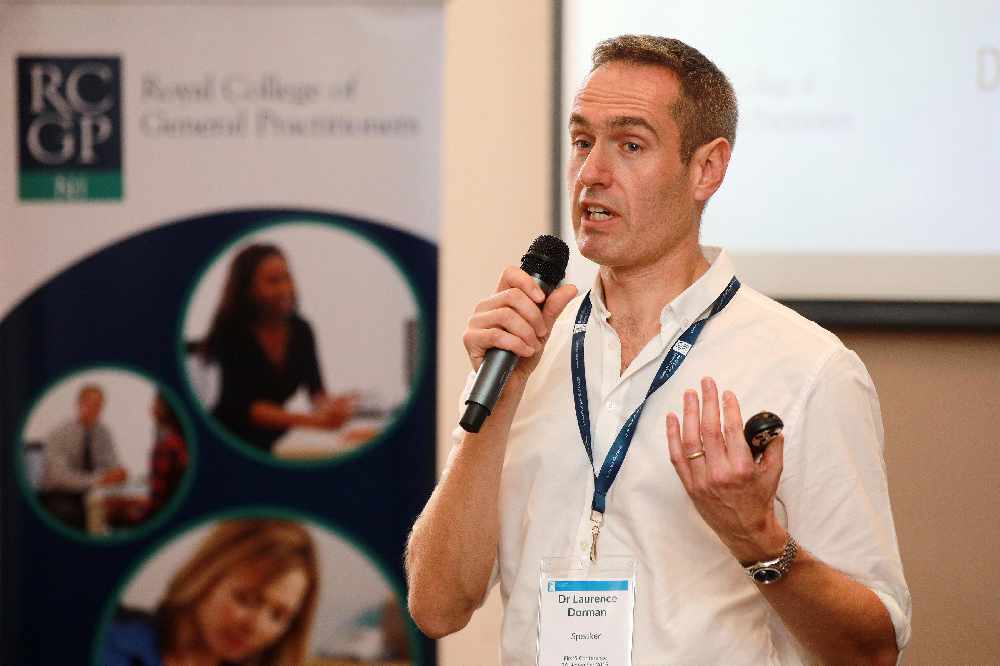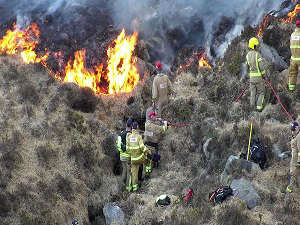
By Q Radio News
Access to basic IT hardware and software is preventing some GPs from carrying out remote consultations with their patients during the COVID-19 outbreak, according to the results of a Northern Ireland technology survey released today by the Royal College of GPs in NI (RCGPNI).
The April 2020 survey of just over 100 GPs in Northern Ireland found that 40% of GPs have not been able to practice remotely from home during the pandemic, with almost a third of these (31%) stating access to technology as the reason.
Over half (52%) of those who had worked from home experienced difficulty in accessing a practice laptop to enable them to do so during the COVID-19 pandemic.
Network issues are also a problem with nearly 4 in 10 (39%) of GPs who have practiced from home saying it crashed at various parts of the day. RCGPNI is now calling on the Government to ensure every GP practice has the necessary technology to allow GPs and their teams to work remotely from home, where necessary.
This should include access to laptops, appropriate connectivity and software to allow effective video consultations.
Commenting on the survey Dr Laurence Dorman, Chair of the Royal College of GPs in Northern Ireland, said: “Our GP colleagues have to be commended for their truly innovative response in totally changing how they deliver care in our surgeries.

"Through investment in IT, access to home working will benefit our patients, ensuring they have good access to their own GP who may not be able to attend their practice in person.
“Aside from the extra pressures brought about by COVID-19, patients still require care for undiagnosed conditions and management of long term illness. GPs are the doctors the public know and trust and they need to be facilitated so their patients can access them better in these changed times.”
RCGPNI also wants to see a NI government-led technology plan setting out clear guidance and accountabilities for deploying technology to GP practices, so that any technological gains made during the pandemic are not lost beyond the crisis.
A similar call on technology was highlighted by RCGPNI in its vision report Support Sustain Renew: A Vision for General Practice launched in November 2019 and the benefits of enhanced technology within practices such as electronic prescribing and methods of accessing patient notes on home visits are yet to be realised.
During the pandemic, GPs and their teams are playing a vital role in providing care to those who have health conditions and illnesses unrelated to COVID-19, as well as those with the virus.
Small numbers of face-to-face consultations are still being provided, based on clinical need, and GP teams are continuing to carry out vital work such as cancer concerns, mental health support and childhood vaccinations while wearing Personal Protective Equipment (PPE) and adhering to infection control guidelines.
Where possible, GPs have moved to new remote ways of working, and are now carrying out the majority of patient consultations remotely to keep themselves and their patients as safe as possible and reduce the risk and spread of infection.
Consulting remotely from home means that GPs can continue to work, even if they themselves are self-isolating, and provide care for the vast numbers of patients with long-term conditions and other diseases that are unrelated to COVID-19, thereby reducing the pressures on hospitals and other parts of the HSC.
However, this RCGPNI technology survey shows there is still some way to go before all GPs have universal access to the technology enabling them to effectively deliver patient care remotely.
Dr Dorman added that General Practice urgently needs this technological investment. “Remote consultations mean that general practice can ‘stay open’ and continue to provide safe care for patients in the community, helping to keep the rest of our Northern Ireland health and social care system upright during this crisis.
"However, we must be properly equipped with the technology to safely do our jobs. Standardised technology backed by well-staffed IT departments, rolled out across general practice would make a major difference to the care we can deliver to our patients both during the COVID-19 crisis and beyond and would also benefit the rest of our health system.”


 Firefighters tackle wildfire near Glenshane Pass
Firefighters tackle wildfire near Glenshane Pass
 Thousands march to derelict Casement Park to demand its redevelopment
Thousands march to derelict Casement Park to demand its redevelopment
 PPS to consider any basis for appeal against Oliver MacCormack sentence
PPS to consider any basis for appeal against Oliver MacCormack sentence
 Working group to assess impact of trade tariffs on Northern Ireland businesses
Working group to assess impact of trade tariffs on Northern Ireland businesses
 Drugs worth £860,000 seized following search in Kilkeel
Drugs worth £860,000 seized following search in Kilkeel